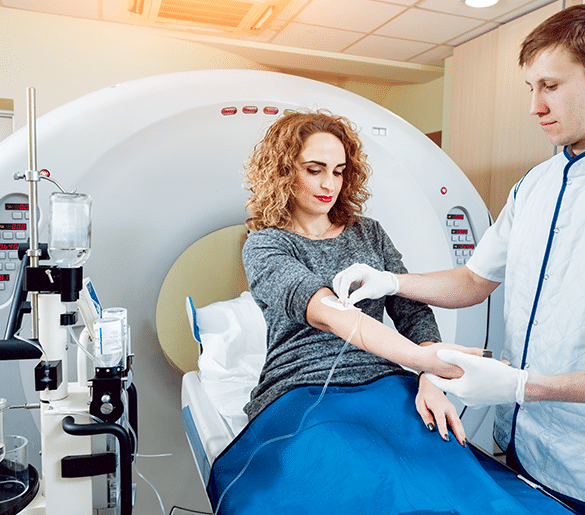General surgery is a broad field of medicine that encompasses a wide range of surgical procedures aimed at treating various health conditions. These surgeries typically address conditions related to the abdominal area, including the stomach, intestines, liver, gallbladder, and more. Surgeons who specialize in general surgery are trained to perform both emergency and elective surgeries, ensuring that patients receive the care they need to restore or maintain their health.
This article explores some of the most common types of general surgeries, their purposes, and when you might need them.
1. Appendectomy
What Is It?
An appendectomy is a surgical procedure to remove the appendix, a small, finger-shaped organ attached to the large intestine. This procedure is commonly performed in emergencies when the appendix becomes inflamed, a condition known as appendicitis.
When Do You Need It?
You will need an appendectomy if you experience symptoms of appendicitis, which include sudden, sharp abdominal pain (usually on the lower right side), fever, nausea, and vomiting. If untreated, the appendix can rupture, leading to a potentially life-threatening condition called peritonitis.
Why It’s Important:
Appendicitis is a medical emergency that requires prompt treatment. Removing the inflamed appendix before it bursts can prevent serious complications and is a relatively straightforward surgical procedure with minimal recovery time.
2. Cholecystectomy (Gallbladder Removal)
What Is It?
A cholecystectomy is the removal of the gallbladder, a small organ that stores bile produced by the liver. The procedure is often performed laparoscopically, meaning it is minimally invasive, requiring only small incisions.
When Do You Need It?
You may need a cholecystectomy if you have gallstones, which can block the bile ducts and cause pain, inflammation, and infection. Symptoms include severe pain in the upper abdomen, nausea, and vomiting. Chronic gallbladder disease or gallbladder infections may also necessitate removal.
Why It’s Important:
While the gallbladder is not an essential organ, a malfunctioning or diseased gallbladder can cause significant pain and complications. Removing the gallbladder can provide relief and prevent further issues related to gallstones.
3. Hernia Repair Surgery
What Is It?
Hernia repair surgery involves the surgical correction of a hernia, which occurs when an internal organ or tissue pushes through a weak spot in the muscle or tissue that surrounds it. Hernias commonly occur in the abdomen but can also develop in the groin area.
When Do You Need It?
You might need hernia repair surgery if you experience a noticeable bulge, pain, or discomfort, especially when lifting, bending, or coughing. If left untreated, hernias can cause complications such as bowel obstruction or strangulation, where blood flow to the affected tissue is cut off.
Why It’s Important:
While some small hernias may not require immediate surgery, most hernias eventually need repair to prevent worsening of the condition. Hernia repair surgery is a common procedure and can be done using open surgery or minimally invasive laparoscopic techniques.
4. Colectomy
What Is It?
A colectomy is a surgical procedure to remove all or part of the colon (large intestine). This surgery may be performed to treat a variety of conditions, including colon cancer, diverticulitis, and inflammatory bowel diseases such as Crohn’s disease or ulcerative colitis.
When Do You Need It?
You may need a colectomy if you have severe or life-threatening gastrointestinal conditions that do not respond to medication or other treatments. For example, if you have colon cancer, removing the affected part of the colon can help prevent the spread of cancer.
Why It’s Important:
Colectomy can be a life-saving procedure for individuals with severe gastrointestinal conditions. After the surgery, most patients can lead a normal life, although some may need adjustments to their diet or lifestyle.
5. Hemorrhoidectomy
What Is It?
A hemorrhoidectomy is the surgical removal of hemorrhoids, which are swollen veins in the lower rectum and anus. Hemorrhoids can cause pain, bleeding, and discomfort, especially during bowel movements.
When Do You Need It?
Surgery may be required if you have large, painful hemorrhoids that do not respond to less invasive treatments such as dietary changes, medications, or minimally invasive procedures. Symptoms such as persistent bleeding, severe pain, or prolapsed hemorrhoids (those that extend outside the anus) may indicate the need for surgical intervention.
Why It’s Important:
Hemorrhoidectomy is usually recommended when less invasive treatments have failed. It can provide long-lasting relief from the pain and discomfort of hemorrhoids, helping patients regain normal function and improve their quality of life.
6. Mastectomy
What Is It?
A mastectomy is a surgical procedure to remove one or both breasts, usually to treat or prevent breast cancer. There are several types of mastectomies, ranging from removing only the cancerous tissue (lumpectomy) to removing the entire breast.
When Do You Need It?
You may need a mastectomy if you have been diagnosed with breast cancer, especially if the tumor is large, located in multiple areas, or if you are at high risk of recurrence. In some cases, individuals at high risk of developing breast cancer (due to genetics or family history) may opt for a preventive mastectomy.
Why It’s Important:
For patients diagnosed with breast cancer, mastectomy can be a vital step toward eliminating cancerous tissue and preventing the spread of the disease. Advances in reconstructive surgery have also made it possible for many patients to restore the appearance of their breasts after surgery.
7. Thyroidectomy
What Is It?
Thyroidectomy is the removal of all or part of the thyroid gland, which is located at the front of the neck and is responsible for regulating metabolism through hormone production.
When Do You Need It?
Thyroidectomy is commonly performed to treat thyroid cancer, large goiters, or hyperthyroidism (overactive thyroid). You may need this surgery if you have a tumor or nodule on your thyroid that is suspicious for cancer or if your thyroid is producing too many hormones, causing symptoms like weight loss, rapid heartbeat, and nervousness.
Why It’s Important:
Removing the thyroid can be crucial in managing thyroid disorders that are not responsive to medication or other treatments. After surgery, patients may need to take thyroid hormone replacement medication to maintain normal hormone levels.
8. Laparoscopic Surgery
What Is It?
Laparoscopic surgery is a minimally invasive procedure that allows surgeons to operate through small incisions using a camera and specialized instruments. This technique is commonly used for a variety of surgeries, including gallbladder removal, hernia repairs, and appendectomies.
When Do You Need It?
Laparoscopic surgery is often recommended when the condition can be treated without the need for large incisions. It is particularly useful for patients who need a quicker recovery time and want to avoid the risks associated with larger, open surgeries.
Why It’s Important:
Laparoscopic surgery offers the advantage of shorter recovery times, less scarring, and fewer complications. It is a preferred option for many general surgeries, allowing patients to return to their normal activities more quickly.
Choosing the Right General Surgery Hospital
When facing any of these surgeries, it’s crucial to choose a medical facility that offers comprehensive and advanced care. If you’re looking for a high-quality General Surgery Hospital in Kenya. This facility is equipped with modern technology and experienced general surgeons who specialize in a wide range of surgical procedures, ensuring the best outcomes for their patients.
Conclusion
General surgery covers a wide array of procedures that can address numerous health conditions, from emergencies like appendicitis to planned surgeries like hernia repair. Understanding when you might need surgery and the importance of seeking timely treatment can make a significant difference in your health outcomes. If you’re dealing with any of the issues mentioned above, consult with a medical professional to determine the best course of action.



